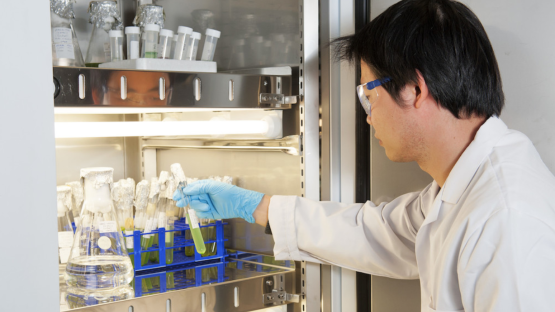The IAEA has designated the Institute for Global Food Security (IGFS) as a Collaborating Centre until 2025. The IAEA and IGFS of the Queen’s University Belfast, United Kingdom, formalized their ongoing collaboration to enhance food safety and quality and to promote food integrity worldwide, during a virtual ceremony held today on the sidelines of the IAEA Board of Governors meeting.
The IGFS provides research to a range of stakeholders, including regulators, governments and multinational industries. It tackles food contamination and adulteration and works on food integrity projects on the international stage. Key aspects of its mandate closely parallel that of the IAEA regarding food and environmental protection, carried out by the Joint FAO/IAEA Centre of Nuclear Techniques in Food and Agriculture.
“This will expand the scope of nuclear and complementary analytical methods available to IAEA Member State laboratories to support systems for controlling food contaminants, food authenticity and traceability,” said Najat Mokhtar, IAEA Deputy Director General and Head of the Department of Nuclear Sciences and Applications.
The collaboration will leverage the nuclear analytical techniques developed and disseminated by the IAEA with the novel technologies and applications developed by the IGFS. Together they will provide solutions to food security problems in both developing and developed countries.
As an IAEA Collaborating Centre, IGFS, which has connections with institutes in Africa and South East Asia, will support the Agency’s programmatic activities focused on building capacity for food safety and security in Member States through applied research, technology transfer and the provision of guidance and advice. The collaboration is aimed at protecting consumer health, enabling trade in food commodities through safety and quality certifications, and tackling issues such as the increasing incidence of food fraud.
Professor Chris Elliott, founder of the IGFS, said it was a wonderful accolade for his institute to be recognized by the IAEA for its efforts in food and feed safety and authenticity. “We are thrilled by the opportunities this agreement will provide for us to support the vital work of the Agency,” he added.
IAEA Collaborating Centres
To promote the practical use of nuclear technologies, the IAEA collaborates with designated institutions around the world. Through the Collaborating Centres network, these organizations in Member States can assist the IAEA by undertaking original research and development and training relating to nuclear science and technologies, and their safe and secure applications.
We are thrilled by the opportunities this agreement will provide for us to support the vital work of the Agency.








